Commercial Fitness Equipment Brands Commercial Gym Equipment Manufacturer Ntaifitness High Quality Gym Equipment Wholesale. Find Ntaifitness Fitness For Quick Result Now! Find The Gym Equipment Specialist To Service For You. Leading Brands. Great Prices. Types: Treadmill, Upright Bike, Elliptical Machine. Weights Machine. Contact us and Save 5% On Your Entire Order.
Last active 4 hours ago
Don't wanna be here? Send us removal request.
Text
Your Shoulders Look Narrow—Here’s Why and How to Build a Wider Frame
Ever catch yourself in the mirror and think, “Man, my shoulders could use some width”? You’re not alone. Broad, powerful shoulders are the hallmark of a strong physique, but getting them is no walk in the park. A while back, a lively discussion in a popular fitness community blew up when a seasoned lifter tackled the question of how to build a wider shoulder girdle. The thread wasn’t just about…

View On WordPress
0 notes
Text
Your Overhead Press Sucks—Here’s How to Make It Elite
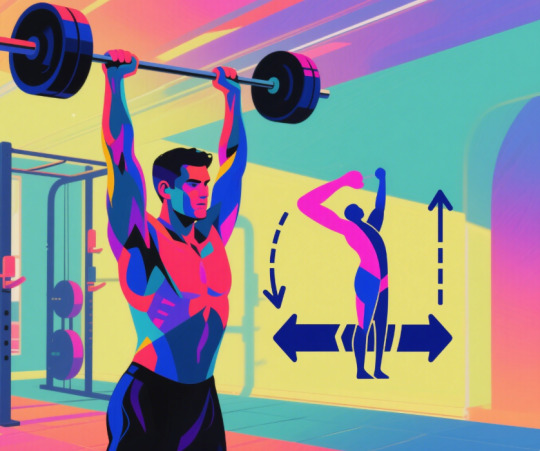
Ever hoist a barbell overhead and feel like you’re fighting gravity itself? The overhead press is a beast of a lift, and for most gym-goers, it’s a humbling one.
A while back, a heated discussion in a popular fitness community blew up when a seasoned lifter shared their grind to master this move. It wasn’t just a flex—it was a no-nonsense breakdown of why so many people stall on the overhead press and how to push past the plateau.
Today, we’re unpacking the mistakes holding you back and dropping battle-tested tips to make your overhead press a force to be reckoned with. Let’s dive in.
The Overhead Press Problem: Why It’s So Damn Hard
Let’s get one thing straight: The overhead press is a gut-check. Unlike the bench press, where you’re cozy on a bench, this lift demands every muscle from your shoulders to your core to fire in sync.
In that fitness community thread, a veteran lifter called out the biggest issue: Most people treat the overhead press like an afterthought, tacking it onto their routine without a plan. The result? Weak presses and zero progress.
Why does this happen? Because the overhead press is unforgiving. It exposes weaknesses—shaky shoulders, a wobbly core, or sloppy form—in a heartbeat. If you’re stuck, it’s likely because you’re not training it with purpose. A smart approach might involve pressing once or twice a week with 3-5 heavy reps, paired with accessories like lateral raises or dips.
But too many lifters just wing it, doing random sets and wondering why they’re not getting stronger.
A 2020 study in the Journal of Strength and Conditioning Research found that structured, progressive overload programs—adding weight over time—drive significant strength gains in compound lifts like the press. So, if your overhead press is stuck, it’s time to get serious.
⚡ “The overhead press doesn’t care about your excuses. Train it with a plan, or stay weak.” ⚡
Conflict #1: Pressing Hard vs. Pressing Smart
One big debate in the community thread was about effort versus strategy. Some lifters thought grinding out max-effort presses every session was the key to gains. The veteran disagreed, arguing that smart programming—mixing heavy and lighter days—beats brute force every time. Who’s got the edge here?
Here’s the truth: Going all-out every workout is a recipe for burnout. Your shoulders and triceps can’t handle constant max lifts without breaking down. A better plan? Press heavy (3-5 reps at 80-90% of your max) once a week, then do a lighter day (8-12 reps with variations like dumbbell presses) to build volume. This balance builds strength without wrecking your joints.

A 2021 meta-analysis in Sports Medicine supports this: Combining high-intensity and moderate-volume training maximizes strength gains in lifts like the overhead press. Yet, tons of lifters hammer away with max reps, then wonder why their shoulders feel like garbage. Press smart, not just hard.
Hot take: Stop treating every press session like a Strongman contest. Mix heavy and light to keep climbing.
💬 “Grinding max presses every day is like sprinting a marathon. Balance intensity and volume to win.” 💬
Conflict #2: Core Strength vs. Shoulder Obsession
Another heated topic in the discussion was about what really drives the overhead press. Some lifters focused only on their shoulders, thinking bigger delts equal a bigger press. The veteran pushed back, stressing that a weak core is often the silent killer of overhead strength.

Think about it: When you press a barbell overhead, your core is what keeps you from folding like a lawn chair. If your abs and obliques are soft, you’ll wobble, leak power, and stall out.
A solid routine might include core work like planks, hanging leg raises, or even deadlifts to build stability. I know a lifter, let’s call her Sarah, who plateaued at 95 pounds on her press for months. She added 3 sets of heavy planks and Romanian deadlifts weekly, and six months later, she was pressing 115 with ease.
A 2019 study in Journal of Sports Sciences confirms that core strength enhances performance in overhead lifts by improving stability. Yet, so many lifters skip core work, thinking it’s just for abs. Newsflash: Your core’s the foundation of a big press.
⚡ “Weak core, weak press. Build a rock-solid midsection, or your shoulders will never shine.” ⚡
Conflict #3: Form Freak-Out vs. Progress Focus
Form was another sticking point in the thread. Some lifters obsessed over “perfect” technique—knees locked, back straight, bar path flawless—while the veteran argued that overthinking form can stall your gains. Sure, technique matters, but progress comes from lifting, not analyzing.
Let’s be real: Nobody’s overhead press is textbook on day one. Good form—tight core, slight leg drive, bar over mid-foot—keeps you safe and efficient. But if you’re spending 10 minutes tweaking your stance instead of pressing, you’re not getting stronger.
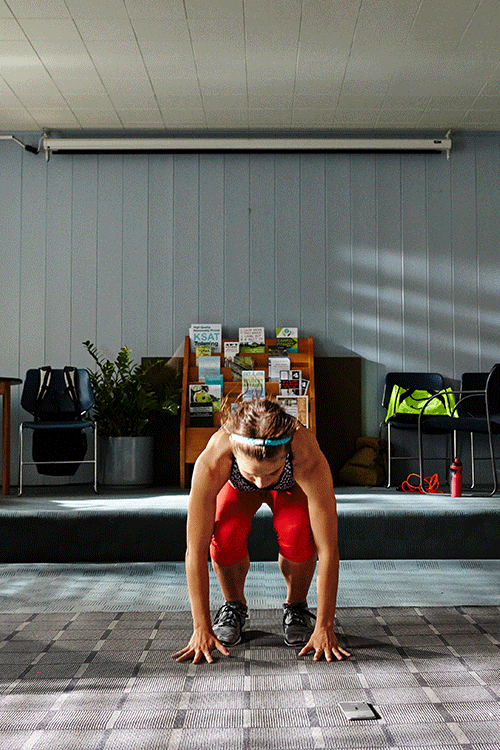
Progressive overload is the game: Start with a weight you can handle for 5 reps, add 2.5-5 pounds every couple of weeks, and refine form as you go.
A 2018 study in Medicine & Science in Sports & Exercise found that consistent load progression, even with minor form imperfections, drives strength gains in compound lifts.
Compare that to the lifter who’s still pressing 65 pounds, scared to add weight because their form’s not “perfect.” Get the basics, then press and grow.
💬 “Perfect form is a myth. Nail the essentials, add weight, and let experience polish your press.” 💬
Time to Own the Overhead Press
That fitness community discussion wasn’t just gym talk—it was a blueprint for anyone chasing a stronger overhead press. The takeaways? Treat the press like a priority with a structured plan, balance heavy and light days, strengthen your core, and focus on progress over perfection.
But here’s the deal: None of this works if you don’t show up. A killer press is built through consistent, smart effort—not wishful thinking.
So, take a hard look at your overhead press game. Are you stalling because you’re winging it? Skipping core work? Obsessing over form? Start with a plan—press twice a week, mix heavy and light, add core and accessory moves, and track your numbers. Fuel up with enough food, sleep like a pro, and keep grinding. The overhead press is a beast, but you can tame it.
What’s holding your press back? Got a tip that’s worked for you? Drop a comment and let’s swap ideas. Your next PR is out there—go claim it.
Gold Nuggets to Power Up Your Press
⚡ “The overhead press doesn’t care about your excuses. Train it with a plan, or stay weak.”
💬 “Grinding max presses every day is like sprinting a marathon. Balance intensity and volume to win.”
⚡ “Weak core, weak press. Build a rock-solid midsection, or your shoulders will never shine.”
💬 “Perfect form is a myth. Nail the essentials, add weight, and let experience polish your press.”
3 notes
·
View notes
Text
Coach Tyler Wall’s Epic Legacy: How to Crush Your Goals Like He Taught Us
By [Exercise2025], Fitness Junkie and Hype Machine Yo, what’s good, fitness fam? I just stumbled across this dope forum post on NtaiFitness.com called “The Heartbreaking Story of Coach Tyler Wall: A True Inspiration Gone Too Soon” (peep it here: https://www.ntaifitness.com/en/boards/topic/56/the-heartbreaking-story-of-coach-tyler-wall-a-true-inspiration-gone-too-soon), and it’s got me pumped to…

View On WordPress
0 notes
Text
Why Coach Tyler Wall’s Story Broke My Heart and Changed My Workout Forever
By [Fitness365], Fitness Enthusiast and Life-Long Gym Rat

Man, I’m still reeling. I just read this incredible forum post on NtaiFitness.com called “The Heartbreaking Story of Coach Tyler Wall: A True Inspiration Gone Too Soon” (check it out here: https://www.ntaifitness.com/en/boards/topic/56/the-heartbreaking-story-of-coach-tyler-wall-a-true-inspiration-gone-too-soon), and it’s got me all kinds of emotional. If you haven’t heard about Coach Tyler Wall, grab a tissue and settle in.
This guy was a fitness coach who helped change lives, but his own life ended way too soon. His story hit me hard—not just as a gym guy, but as a human. Let me tell you why Tyler’s legacy is making me rethink my workouts and how I live.
So, here’s the deal. Tyler Wall was a trainer in a MrBeast video called “Lose 100 LBs, Win $250,000!” It’s about this dude named Majd who had to lose 100 pounds while stuck in a small training facility. Sounds wild, right? Majd had all the food and gear he needed, but he was cut off from the world. Tyler was his coach, the guy who got him through the toughest days. The forum post describes how Tyler wasn’t just yelling “one more rep!” He was a friend.

A cheerleader. The kind of person who made you believe you could do anything. In the video, you see him laughing with Majd, pushing him to keep going. That’s real stuff. That’s what coaching should be.
But here’s where it gets heavy. Halfway through filming, Tyler died. He was only 38. Found in his apartment in Greenville, North Carolina, back in February 2025.
The forum says his family didn’t share the cause of death, and I respect that. Losing someone that young is brutal enough without people poking around. The MrBeast team almost didn’t release the video out of respect. They asked Tyler’s family what to do. His family said Tyler would’ve wanted the video out there, spreading hope. That tells you everything about who he was. A guy who lived to lift others up.
Reading that forum post, I couldn’t stop thinking about Tyler’s impact. The post mentions his obituary, saying he was from Southington, Connecticut, and went to UCONN. He loved hip-hop, traveled the world, and coached people to be their best. Not just in the gym, but in life. He saw something special in everyone.
Like with Majd. Majd lost over 100 pounds and won $417,650. On Day 178, when he left that facility, he dedicated it to Tyler. “Without Coach Wall, I wouldn’t have done this,” he said. I’m not crying, you’re crying.
This got me reflecting on my own fitness journey. I’ve been lifting weights for 15 years. I’ve had coaches who were tough, some who were chill. But none like Tyler. He reminds me why I got into fitness. It’s not just about bigger biceps or a six-pack.
It’s about feeling strong inside and out. Tyler didn’t just train Majd’s body. He trained his heart. That’s what I want to do for myself and the people I train. Be a light, not just a drill sergeant.
The forum post also got me thinking about how short life is. Tyler was 38. I’m not much older. It’s a wake-up call. I spend so much time chasing PRs or stressing about my next bulk.
But what if I focused on the people around me? What if I smiled more at the gym? Helped a newbie with their form? Tyler’s story makes me want to be better. Not just at deadlifts, but at life.
So, here’s what I’m doing. I’m starting every workout with a moment to think about why I’m there. To feel good.
To be healthy. To honor guys like Tyler who remind us what matters. I’m also reaching out to my old clients, just to check in. Not to sell them sessions, but to see how they’re doing.
And I’m playing some hip-hop in the gym—Tyler would approve.
If you’re reading this, I want you to think about your own “why.” Why do you work out? Is it for you? For your family? For someone who believes in you? Maybe take a page from Tyler’s book and encourage someone else.
Spot a stranger at the gym. Tell a friend they’re killing it. Small stuff adds up. That’s how Tyler lived, and it’s how we can keep his spirit going.
The NtaiFitness forum post ends with a call to share stories about Tyler. I didn’t know him, but I feel like I do. His story’s got me fired up to make every day count. If you’ve got a coach who changed your life, drop their name in the comments. Let’s spread some love.
And if you haven’t seen that MrBeast video, watch it. It’s a tribute to a guy who made the world brighter. Rest in peace, Coach Tyler.
You’re still inspiring us.
0 notes
Text
The Science‑Backed Guide to Getting Abs—Plus a Machine Review
I love diving into fitness science. Today, I’m sharing what research says abut abs, and how the Ntaifitness Ab Coaster NT‑10090 fits in. I spotted lively debates in our forum at https://www.ntaifitness.com/en/boards/, so I combined practice with evidence. 1. What We Know About Ab Training Muscle groups: Your abs include rectus abdominis (“six-pack”), internal/external obliques, and transverse…
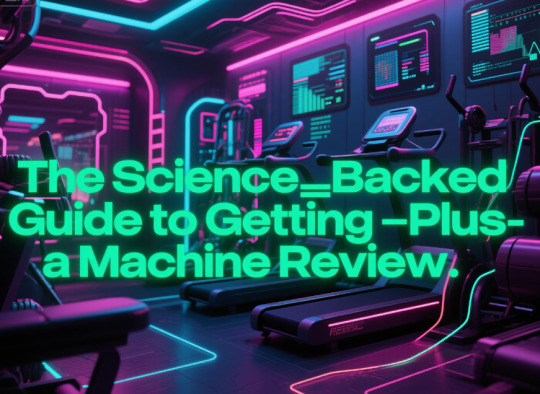
View On WordPress
0 notes
Text
My Journey with the Power Runner Ntaifitness ONEUP-3305: A Game-Changer for My Workouts
Hey there, fitness fam! If you’re anything like me, you’re always on the hunt for gear that can take your training to the next level. I’ve been hitting the gym for years, chasing that sweet spot of strength, speed, and stamina, but sometimes it feels like you’re just spinning your wheels, ya know? That’s why I got super curious when I stumbled across all the buzz about the Power Runner…

View On WordPress
0 notes
Text
Unleash Your Power with the Ntaifitness NT-10091 Tire Flipper
What’s good, fitness warriors? Want to channel your inner athlete? The Ntaifitness NT-10091 Tire Flipper is your key to TireFlip Crossfit Workout Training Machine glory. It’s tough, fun, and perfect for home gyms. Let’s explore workouts, recovery, and why tire flip 180 beats other gear. Get ready to crush it! Why’s the NT-10091 a Must-Have? This tireflip 180 machine is compact (4.7’ x 3.1’)…

View On WordPress
0 notes
Text
Training Until You Crash? Why Going All-Out Might Be Sabotaging Your Gains
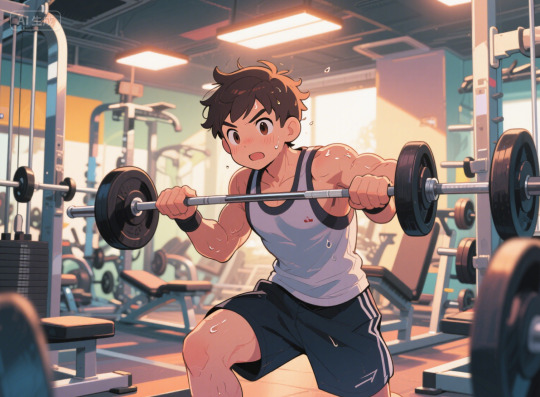
Ever hit the gym like you’re auditioning for a superhero movie, pushing every set until your muscles scream and you’re gasping for air? Feels badass, right? But what if that “leave it all on the floor” mentality is actually holding you back?
A heated discussion in a popular fitness community blew up when a seasoned lifter challenged the idea of always training to absolute failure.
The thread was a wake-up call: Going all-out every session might not be the path to gains—it could be a one-way ticket to burnout city.
Today, we’re unpacking why this hardcore approach can backfire and how to train smarter for strength and size. Let’s dive in.
The All-Out Myth: Heroic or Just Dumb?
There’s something intoxicating about pushing a set until you can’t move the bar another inch. It’s you against the iron, and you’re not backing down.
But in that fitness community thread, a veteran lifter dropped a truth bomb: Training to failure every set, every workout, is a recipe for stagnation. Why? Because it trashes your body without giving it room to grow.
Think about it: If you’re squatting until you collapse or benching until your arms give out, you’re not just taxing your muscles—you’re frying your nervous system and joints. That leaves you too wrecked to train effectively the next session.

A smarter approach might be pushing 1-2 sets per exercise close to failure (say, stopping 1-2 reps shy) while keeping most sets at 70-85% effort.
A 2019 meta-analysis in Sports Medicine found that training just short of failure maximizes muscle growth and strength with less recovery cost.
Yet, so many lifters buy into the “no pain, no gain” hype, thinking anything less than total destruction is slacking. Spoiler: It’s not.
⚡ “Training to failure every set doesn’t make you a warrior—it makes you a wreck. Train hard, but train smart.” ⚡
Conflict #1: Intensity vs. Recovery—Where’s the Line?
One of the biggest debates in the thread was about balancing intensity with recovery.
Some lifters argued that going all-out is the only way to grow, while the veteran pushed back, saying constant max-effort training leaves you running on empty.
The truth? You need intensity to spark gains, but recovery is where the magic happens.
Here’s the deal: Muscles don’t grow during your workout—they grow when you rest, eat, and sleep. If you’re smashing every set to failure, you’re piling up so much fatigue that recovery becomes a pipe dream.

A better plan might be cycling intensity—say, one heavy day (3-5 reps at 85-90% of your max) and one lighter day (8-12 reps at 65-75%) per week. This keeps you pushing hard without burning out.
A 2020 study in Journal of Strength and Conditioning Research supports this: Periodized training (mixing high and low intensity) outperforms constant max-effort plans for long-term strength gains.
Yet, tons of lifters go full throttle every session, then wonder why they’re sore, cranky, and stuck. Sound familiar?
Hot take: If you’re too sore to train again in 48 hours, you’re not hardcore—you’re just bad at recovering.
💬 “Intensity gets you started, but recovery builds the gains. Leave some gas in the tank.” 💬
Conflict #2: Ego Lifting vs. Progress
Another hot topic in the discussion was the ego trap. Some lifters admitted they pushed to failure to “prove” something—whether to themselves or the gym bros watching.
The veteran called this out, arguing that chasing failure for clout sacrifices real progress. Lifting isn’t about Instagram likes—it’s about getting stronger over time.
Let’s be honest: We’ve all added an extra plate just to feel like a boss, even if it meant sloppy reps or a sketchy spotter. But grinding out shaky, failure-bound sets doesn’t build strength—it builds bad habits.
A smarter approach is focusing on controlled reps with weights you can handle, gradually adding load. For example, if you’re deadlifting 315 for 5 clean reps, don’t slap on 405 just to say you did it.
Add 10 pounds every couple of weeks and keep form tight. A 2018 study in Medicine & Science in Sports & Exercise found that consistent, submaximal training drives better strength gains than always chasing max efforts. Ego lifting might feel good, but progress feels better.
⚡ “Ego lifting is a one-rep ticket to nowhere. Lift for progress, not applause.” ⚡
Conflict #3: Failure as a Tool, Not a Lifestyle
Here’s where the thread got juicy. The veteran didn’t say never train to failure—just don’t make it your default. Some lifters argued failure is a must for growth, but the seasoned perspective was clear: Failure is a tool, not a lifestyle. Used sparingly, it can push you past plateaus. Used daily, it’s a wrecking ball.
Picture this: You’re benching, and once a month, you test your limits with a max-effort set to failure. That’s a data point—it shows where you’re at and sparks adaptation.
But if you’re doing that every week, you’re not adapting—you’re just surviving. A solid plan might save failure for the last set of a key lift, like squats or bench, while keeping other sets challenging but manageable. I know a lifter, let’s call her Sarah, who used to grind every set to failure.
She was always sore and plateaued hard. She switched to stopping 1-2 reps shy most days, using failure only occasionally, and her bench jumped 20 pounds in six months.
A 2021 study in Journal of Sports Sciences confirms that occasional failure training boosts strength without the recovery hit of constant max efforts. Use failure like hot sauce—a little goes a long way.
💬 “Failure’s a spice, not the main course. Sprinkle it in, don’t drown your training in it.” 💬
Time to Train Smarter, Not Just Harder
That fitness community discussion wasn’t just a rant—it was a reality check for anyone addicted to the “go hard or go home” mindset. The big takeaways? Training to failure every session trashes your recovery, feeds your ego more than your muscles, and isn’t the only way to grow.
Instead, balance intensity with recovery, prioritize progress over pride, and use failure as a strategic tool, not a daily beatdown. But none of this clicks without consistency—show up, train smart, and give your body what it needs to grow.

So, take a look at your workouts. Are you pushing to failure because it works or because it feels epic? Are you recovering enough to keep progressing? Start with a plan that mixes hard and easy days, keeps most sets a rep or two from failure, and saves the all-out efforts for special occasions. Eat like you mean it, sleep like a pro, and watch your lifts climb.
The gym’s a marathon, not a sprint—don’t burn out before the finish line.
Got a story about training to failure—good or bad? Drop a comment and let’s swap tales. Your next big lift is out there, but you’ve gotta train smart to get it.
Gold Nuggets to Level Up Your Training
⚡ “Training to failure every set doesn’t make you a warrior—it makes you a wreck. Train hard, but train smart.”
💬 “Intensity gets you started, but recovery builds the gains. Leave some gas in the tank.”
⚡ “Ego lifting is a one-rep ticket to nowhere. Lift for progress, not applause.”
💬 “Failure’s a spice, not the main course. Sprinkle it in, don’t drown your training in it.”
0 notes
Text
Why Ntaifitness and the Digital Fitness Boom Are Perfect for Busy Americans
Let’s be real: finding time to hit the gym in 2025 is tough. Between work, family, and life’s chaos, who can commit to a 6 p.m. spin class at Equinox? That’s why the digital fitness hardware revolution is a game-changer, and Ntaifitness is making waves in the U.S. Keep’s 32.11% stock surge (closing at HK$6.83) shows how much people want smart workout hardware.…

View On WordPress
0 notes
Text
Ntaifitness NT-10014 Adjustable Dumbbells: A Space-Saving Solution for Serious Training
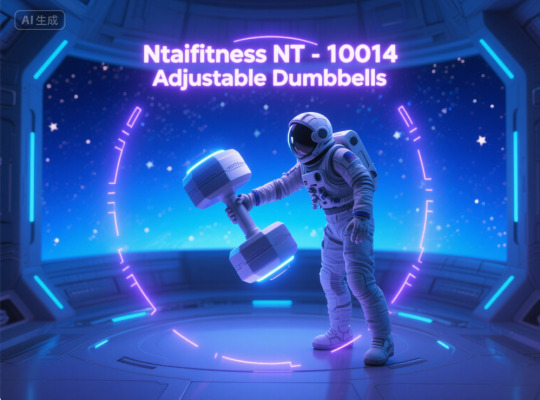
The Ntaifitness NT-10014 adjustable dumbbells offer a compelling solution for those looking to maximize their home gym potential without sacrificing functionality or quality.
Instead of cluttering your space with a full rack of traditional dumbbells, these provide a versatile and space-saving alternative.

What I Liked:
Quick and Easy Weight Adjustments: The dial system is undoubtedly the star of the show. Being able to rapidly switch between weight levels is a game-changer, allowing for seamless transitions between sets and minimizing downtime. This feature is crucial for maintaining workout intensity and efficiency.
Significant Weight Range: With a weight range of 2kg to 32kg (or 2kg to 20kg depending on the model), these dumbbells cater to a broad range of fitness levels. Beginners can start light and progressively increase the weight as they get stronger, while experienced lifters have enough resistance to push their limits.
Durable Construction: The use of high-quality materials, including aluminum weight cradles, instills confidence in the product's longevity. The dumbbells feel solid and well-built, suggesting they can withstand the rigors of regular use.
Comfortable Grip: The contoured, soft-grip handle is a thoughtful addition. A comfortable and secure grip is essential for proper form and preventing hand fatigue, especially during heavy lifts. This feature enhances the overall workout experience.
Space-Saving Design: This is, perhaps, the most significant advantage. Consolidating an entire dumbbell rack into a single, compact system is invaluable for home gyms with limited space.
Mention of Dumbbell Stand Compatibility: The fact that these dumbbells are compatible with a stand adds another layer of convenience for storage and access.
Potential Drawbacks:
Price: While the listed price of $329.99 EXW per pair seems reasonable considering the functionality and space-saving benefits, it's still a significant investment. Potential buyers should consider their budget and frequency of use to determine if the price is justified.
Dial Mechanism Reliability (Needs Testing): The quick-adjust dial system is appealing, but its long-term reliability is crucial. While the description mentions precision engineering, it would be beneficial to see reviews addressing its durability over time.
Bulkiness at Lower Weights: Adjustable dumbbells can sometimes feel bulkier than traditional dumbbells, especially at lower weight settings. This might affect certain exercises that require a smaller profile.
Overall:
The Ntaifitness NT-10014 Adjustable Dumbbells appear to be a well-designed and functional alternative to traditional dumbbells.

The quick weight adjustments, substantial weight range, durable construction, and space-saving design make them an attractive option for home gym enthusiasts.
While the price might be a barrier for some, the convenience and versatility they offer could make them a worthwhile investment for those serious about their training.
Recommendation:
If you're looking to build a versatile and efficient home gym, and space is a concern, the Ntaifitness NT-10014 Adjustable Dumbbells are definitely worth considering.
Just be sure to research customer reviews regarding the long-term durability of the dial mechanism before making a purchase.
0 notes
Text
Ntaifitness Superfit-8016 Assault AirBike Review: A Solid Option for High-Intensity Training
The Ntaifitness Superfit-8016 Assault AirBike aims to be a robust and effective tool for high-intensity interval training (HIIT) and full-body workouts. Based on the provided information, it offers a compelling package for both home and commercial use. Here’s a breakdown of its strengths and potential drawbacks: Pros: Unlimited Scalability: The core of any good assault bike is its resistance…

View On WordPress
0 notes
Text
Heavy Lifts, Hidden Pain: Why Your Gym Routine Might Be Hurting More Than You Think
Ever felt a weird twinge in your pelvis after a heavy deadlift or squat, shrugged it off, and kept lifting? Big mistake. A while back, a raw discussion in a popular fitness community blew the lid off a topic most lifters avoid: pelvic nerve pain and injuries from intense training. It wasn’t just a sob story—it was a wake-up call about how chasing PRs can quietly wreck your body. Today, we’re…

View On WordPress
0 notes
Text
Coaching Success: How the Ntaifitness THEARCHY-2104 Smith Machine Half Rack Combo Powers My Studio

As a fitness coach and a small studio owner, my equipment choices aren't just about what I like to lift; they're about what best serves my clients, ensures their safety, and maximizes the efficiency of my limited floor space.
Every square foot in my studio is a valuable asset, and every piece of equipment must justify its existence by providing unparalleled utility and safety across a diverse client base.
I've encountered countless challenges in setting up the perfect training environment—from managing multiple clients simultaneously to ensuring I can safely guide beginners while challenging advanced athletes.
The perpetual questions in my mind revolved around finding a versatile, durable, and most importantly, client-safe solution that could truly be the backbone of my programming.
That's why when I first discovered the Smith Machine Half Rack Combo Ntaifitness THEARCHY-2104, it immediately stood out as a potential cornerstone for my business.
I used to have separate power racks and a standalone Smith machine, which ate up so much space.
It often meant clients had to wait for equipment, or I had to constantly re-jig sessions to fit around availability.
Plus, teaching a beginner how to squat safely on a free-weight rack could be daunting for both of us.

There were moments I wished I had one piece of equipment that could cater to everyone while keeping them safe and allowing me to be present and coach effectively.
This combo promised that efficiency, and I've been using it for over a year now, and it truly delivers.
The Coach's Edge: Versatility and Safety for Every Client
In my line of work, I train individuals with vastly different fitness levels, from rehabilitation clients and absolute beginners to competitive athletes.
The Ntaifitness THEARCHY-2104 Smith Machine Half Rack Combo has proven to be an invaluable asset in catering to this spectrum, all while maintaining the highest safety standards.
Adaptive for All Levels: The dual functionality is a dream for personalized programming. For my beginner clients, the Smith machine provides a safe, guided path to learn foundational movements like squats, lunges, and presses. This fixed path reduces the need for constant balance correction, allowing them to focus on muscle activation and proper form. As they progress, we seamlessly transition to the half rack for free-weight compound movements, building functional strength and stability.
Uncompromised Client Safety: This is paramount. The multiple lockout points on the Smith machine and the robust, easily adjustable spotter arms on the half rack give me immense peace of mind. I can confidently have clients perform heavy lifts, knowing that if they hit failure, the safety features will catch the bar. This confidence transfers to the client, allowing them to push their limits safely and build strength faster. It reduces client apprehension and minimizes the risk of injury under my supervision.
Space Optimization for Small Studios: For any business owner, square footage is precious. This combo unit intelligently consolidates two major pieces of equipment into one footprint. This means I can offer a wider range of exercises and accommodate more clients or add other essential accessories in my studio, without it feeling cramped. It’s a direct boost to my operational efficiency.
Streamlined Coaching Flow: The ease of switching between the Smith machine and the half rack means I can move fluidly from demonstrating an exercise to spotting a client, or setting up for the next client without significant delays. This maximizes the effective coaching time within a session, which is directly tied to client satisfaction and retention.
I had a client recently, a post-rehab individual, who was very apprehensive about squatting.
We started on the Smith machine, focusing purely on depth and muscle activation.

Once she gained confidence and strength, we moved to the half rack, where the robust spotter arms gave her the security she needed to free squat.
Seeing her progress so smoothly and confidently was incredibly rewarding, and it wouldn't have been as efficient without this versatile setup.
Deep Dive: Programming Flexibility and Durability for Business
The Ntaifitness THEARCHY-2104 Smith Machine Half Rack Combo isn't just about what it does; it's about how it enhances my coaching capabilities and protects my business investment.
Its thoughtful design details are crucial for a commercial setting.
Varied Exercise Modalities: With this unit, I can incorporate a vast array of exercises:
Smith Machine: Excellent for targeted hypertrophy work (e.g., glute-focused squats, incline chest press), rehabilitation exercises, partial reps for strength plateaus, and even plyometrics like box jumps off the fixed bar.
Half Rack: The core for all major compound lifts – squats, bench press, overhead press, rack pulls. It's also perfect for bodyweight exercises with the integrated multi-grip pull-up bar, and for attaching resistance bands or suspension trainers.
Accessory Options: The integrated plate storage keeps the area tidy and adds stability. Many clients appreciate the various pull-up grip options for back development.
Durability in a High-Traffic Environment: Equipment in a commercial setting takes a beating. After over a year of consistent daily use by multiple clients, the Ntaifitness THEARCHY-2104 still operates like new. The heavy-duty steel, industrial-grade linear bearings on the Smith machine, and durable powder coat finish show no significant wear. This means minimal maintenance and maximum uptime, crucial for a business.
Client Programming Efficiency: I can program concurrent sessions on the unit, having one client working on the Smith machine for targeted exercises while another utilizes the half rack for squats or bench presses. If space permits, a third client could be doing bodyweight work on the pull-up bar. This allows me to cycle clients through different stations with minimal downtime, effectively increasing my client capacity per hour.
One of my biggest concerns for any gym equipment is its longevity.
My studio operates 12 hours a day, 6 days a week.
This Smith Machine Half Rack Combo Ntaifitness THEARCHY-2104 has truly held up, from the j-hooks enduring constant re-racks to the smooth glide of the Smith machine bar.
It’s a workhorse, not a show pony, which is exactly what I need.
Building Trust: E-E-A-T for Coaches and Clients
As a coach, my Expertise, Experience, Authoritativeness, and Trustworthiness are constantly being assessed by my clients.
The equipment I choose directly reflects on my professionalism and commitment to their safety and results.
Scientific Backing for Programming: Using equipment that allows for both free-weight and fixed-path training aligns with widely accepted strength and conditioning principles. Free weights build functional strength and proprioception, while fixed paths allow for targeted muscular overload and safe execution for beginners or those with specific limitations. This scientific justification strengthens my programming choices.
Demonstrating Authority Through Equipment: Investing in robust, versatile, and safe equipment like the Ntaifitness THEARCHY-2104 conveys a commitment to quality and client well-being. It visually demonstrates that I provide a premium training environment. When clients see a solid, professional-grade setup, it immediately builds confidence in my services.
Client Confidence & Trust: Knowing they are training on secure, reliable equipment allows clients to focus on their effort and form rather than worrying about equipment failure. This psychological safety fosters trust and deeper engagement in their fitness journey. It translates into better results and stronger client relationships.
My clients often comment on how much more confident they feel training on this equipment compared to some older or less stable setups they've used.
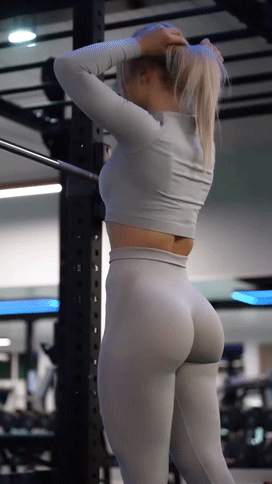
That feedback alone is invaluable for my business.
Frequently Asked Questions (FAQs) for Studio Owners & Coaches
I often get questions from other coaches and aspiring studio owners about equipment selection.
Here are some of the most common ones regarding multi-functional units:
Q: What is the typical footprint required for the Ntaifitness THEARCHY-2104 in a commercial setting, considering client movement?
A: While the unit itself has specific dimensions, I recommend budgeting at least 10ft x 10ft of clear space around the Smith Machine Half Rack Combo for optimal client movement, spotter access, and easy plate loading/unloading. This accounts for barbells, benches, and client positioning during various exercises. Maximum ceiling height of at least 8.5-9ft is ideal for overhead presses and pull-ups.
Q: How does the Ntaifitness THEARCHY-2104 impact my ability to train multiple clients simultaneously?
A: It significantly improves efficiency. I can have one client working on the Smith machine for targeted exercises while another utilizes the half rack for squats or bench presses. If space permits, a third client could be doing bodyweight work on the pull-up bar. This allows me to cycle clients through different stations with minimal downtime, effectively increasing my client capacity per hour.
Q: Is the assembly process feasible for a small business owner without professional installers?
A: With good instructions and basic tools, assembly is feasible. However, due to the weight and size of components, I highly recommend having at least two, preferably three, strong individuals for assembly. Budget a full day, perhaps 6-8 hours, to ensure all components are securely fastened and tested before client use. It’s an investment in setup time that pays off in long-term reliability.
Q: How do I justify the investment in a combo unit like the Ntaifitness THEARCHY-2104 compared to separate pieces?
A: The justification comes down to space efficiency, cost-effectiveness, and programming versatility. While the upfront cost might seem higher than a basic rack, it's often significantly less than purchasing a high-quality Smith machine and a robust half rack separately. The consolidated footprint allows for more equipment or open space, directly impacting your studio's profitability and client experience. It’s an investment in multi-functional utility.
The Smart Choice for Your Fitness Business
For any fitness coach or small studio owner looking to maximize their space, enhance client safety, and broaden their programming capabilities, the Smith Machine Half Rack Combo Ntaifitness THEARCHY-2104 is an exceptional choice.
It's not just a piece of equipment; it's a foundational tool that supports diverse client needs and optimizes business operations.
Take a closer look at what this robust and versatile machine can offer your studio: https://www.fitness-china.com/smith-machine-half-rack-combo. It's an investment in client results and business growth.
0 notes
Text
My Home Gym Dream Machine: The Ntaifitness THEARCHY-2104 Smith Machine Half Rack Combo
Thinking about setting up a home gym, but feeling overwhelmed by all the options out there? I totally get it. Maybe you’re worried about space. Perhaps you’re unsure if you can really get a comprehensive workout without heading to a commercial gym. Believe me, I’ve been there. I stared at endless equipment lists and wondered how to make the most of my limited space. I also thought about how to…
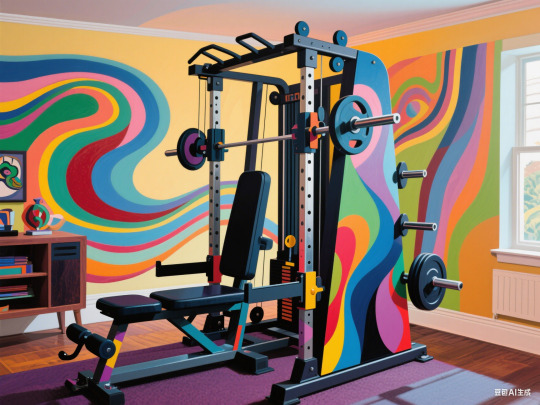
View On WordPress
0 notes
Text
Why Your Bench Press Sucks (And How to Make It Legendary)
You’re grinding under the bar, chest puffed, ego on the line, but your bench press is going nowhere. Sound familiar? Not long ago, a hardcore fitness community ignited a discussion. They talked about transforming a mediocre bench into a monster lift. A seasoned lifter revealed why most gym-goers stall out. They also provided essential knowledge on how to level up. This wasn’t just locker room…

View On WordPress
0 notes
Text
Your Shoulders and Chest Are Holding You Back—Here’s Why and How to Fix It

You’re in the gym, ready to dominate chest day, but instead of feeling like a beast, your shoulders are whining, and your pecs look like they’re on strike.
Sound familiar? A heated debate in a popular fitness community recently blew up over this exact issue: lifters stuck with achy shoulders, lagging chest development, or both.
A while back, a heated discussion in a popular fitness community tackled this exact problem: lifters struggling with weak chests, achy shoulders, or both.
The discussion wasn’t just gym bro drama—it was a wake-up call about why so many people struggle with upper body training.
Today, we’re breaking down the biggest mistakes holding you back and sharing no-BS fixes to build a strong, pain-free chest and shoulders. Buckle up—this is gonna hit hard.
Ever hit the gym, ready to crush a chest workout, only to feel your shoulders screaming or your bench press stalling out? It’s like your upper body’s staging a mutiny.
The Upper Body Struggle Is Real
Nothing kills your gym vibe like a weak chest or cranky shoulders. You’re grinding through bench presses, but your pecs aren’t growing, or your shoulders feel like they’re about to pop.
In that fitness community thread, a seasoned lifter pointed out a brutal truth: Most people mess up their upper body training by ignoring balance, form, or recovery.
The result? Plateaus, pain, and a whole lot of frustration.
Think about it: If your shoulders hurt every time you press, or your chest feels flat despite endless reps, something’s off. Maybe you’re overdoing it, using bad technique, or neglecting key muscles.
A smart upper body plan focuses on compound lifts like bench presses and overhead presses, paired with accessories like rows and dips, to build strength without wrecking your joints. But too many lifters chase the pump with random routines, and their progress pays the price.
A 2020 study in the Journal of Strength and Conditioning Research found that balanced training programs—targeting both primary and supporting muscles—reduce injury risk and boost performance. So, if your upper body’s lagging, it’s time to get strategic.
⚡ “A weak chest or achy shoulders aren’t just bad luck—they’re a sign your training’s out of whack.” ⚡
The Upper Body Crisis Nobody Talks About
Let’s be honest: Nothing kills your gym mojo faster than shoulder pain or a chest that refuses to grow.
You’re grinding through bench presses, but your shoulders feel like they’re about to stage a walkout, and your pecs? Still waiting for their big debut.
The fitness community discussion laid it bare: Most lifters are sabotaging their upper body gains with bad habits—poor form, imbalanced training, or just plain overdoing it.
Why does this happen? Because upper body training is a balancing act. Your chest, shoulders, and triceps all have to play nice, but most people treat the bench press like it’s the only move that matters.
Spoiler: It’s not. A smart plan mixes compound lifts (like bench and overhead presses) with targeted accessories (think rows, flys, and face pulls) to keep everything in sync. Screw that up, and you’re begging for pain or plateaus.
A 2020 study in the Journal of Strength and Conditioning Research found that balanced training programs—hitting both primary and supporting muscles—slash injury risk and boost strength. So, if your upper body’s crying for help, it’s time to rethink your approach.
⚡ “Shoulder pain and a weak chest aren’t just bad days—they’re red flags your training’s broken.” ⚡
Conflict #1: Overloading Shoulders While Starving Your Chest
One big debate in the community discussion was about muscle imbalance.
Some lifters complained their shoulders were taking over during chest exercises, leaving their pecs underdeveloped.
The veteran lifter’s take? You’re probably benching wrong or skipping the right accessories.
Here’s the deal: The bench press is a chest exercise, but it leans hard on your shoulders and triceps too.
If your form’s off—say, flaring your elbows or shrugging your shoulders—your delts do all the work, and your pecs snooze.
Fix it by tucking your elbows slightly (think 45-degree angle) and keeping your shoulder blades pinched back.
Also, add chest-focused moves like dumbbell flys or pec-deck flys to isolate those pecs.
A friend of mine, let’s call her Sarah, struggled with a weak bench until she added 3 sets of flys after her presses. Six months later, her chest was popping, and her bench PR shot up 20 pounds.
Conflict #2: Your Bench Press Is a Shoulder Killer
One of the loudest gripes in the fitness community was about the bench press.
Lifters complained their shoulders were getting smoked while their chests stayed flat. The veteran lifter’s hot take? Your form’s probably garbage, and it’s letting your shoulders steal the show.
Here’s the deal: The bench press is a chest exercise, but it’s also a team effort—your shoulders and triceps are in on the action.
If you’re flaring your elbows out like you’re doing jazz hands or shrugging your shoulders up to your ears, you’re dumping the load on your delts.
The fix? Tuck your elbows slightly (aim for a 45-degree angle), pinch your shoulder blades together, and keep your feet planted for stability.
Also, throw in chest-specific moves like dumbbell flys or pec-deck flys to wake up those pecs.
A 2019 study in Sports Medicine showed that combining compound and isolation exercises boosts chest activation without overtaxing shoulders.
Yet, tons of lifters bench with zero focus, then wonder why their shoulders hate them.
Real talk: If your shoulders hurt more than your chest after benching, you’re not training—you’re torturing your joints.
💬 “Bad bench form turns your chest day into shoulder punishment. Fix your setup, or pay the price.” 💬
Conflict #3: You’re Ignoring Your Back (And It’s Screwing You)
Another big clash in the discussion was about balance—or the lack of it. Some lifters were so chest-obsessed they barely touched their back muscles.
The veteran’s response? Neglect your lats and traps, and you’re begging for weak presses and jacked-up shoulders.
Think about it: Your upper body’s like a seesaw. If you’re all chest and no back, you’re tipping over—literally. Weak lats and traps mess up your bench stability and pull your shoulders forward, setting you up for pain and lousy posture.
A solid plan includes pulling exercises like barbell rows, pull-ups, or face pulls at least as often as you push. For example, try matching every bench set with a row set to keep things even.
A 2021 study in Medicine & Science in Sports & Exercise found that balanced push-pull training reduces shoulder strain and improves pressing strength. But let’s be real—most gym bros skip back day because it’s not “sexy.” Newsflash: A strong back makes your chest look better and your shoulders feel better.
⚡ “No back, no gains. Skip pulling exercises, and your chest and shoulders will suffer.” ⚡
Conflict #4: Overtraining vs. Under-Recovering
The community thread got spicy when some lifters blamed their shoulder pain on “overtraining.” The veteran pushed back hard, saying it’s not about training too much—it’s about recovering too little. If your shoulders are fried, you’re probably not eating, sleeping, or resting enough.
Let’s get real: Are your shoulders trashed because you’re benching five days a week, or because you’re surviving on coffee and four hours of sleep? True overtraining is rare for most lifters—it’s usually under-recovery in disguise.

A smart upper body routine might hit chest and shoulders twice a week, with heavy days (3-5 reps) and lighter accessory days (8-12 reps). But if you’re not eating enough protein (aim for 0.8-1g per pound of body weight) or getting 7-9 hours of sleep, your body can’t rebuild.
A 2020 meta-analysis in Journal of Sports Sciences found that adequate recovery (nutrition, sleep, and rest days) is just as critical as training for strength gains. So, if your shoulders are screaming, check your lifestyle before you blame the barbell.
I know a guy, let’s call him Mike, who kept getting shoulder twinges from heavy benching. He was training hard but eating like a bird and sleeping five hours a night.
He upped his calories, prioritized sleep, and added a rest day—boom, pain gone, bench up 15 pounds in two months. Recovery isn’t sexy, but it’s the secret sauce.
💬 “Overtraining’s a myth for most. Under-eating and under-sleeping are the real shoulder killers.” 💬
Conflict #5: Mobility Myths vs. Actual Fixes
One last debate in the thread was about shoulder mobility. Some lifters thought endless stretching would fix their pain, while the veteran argued that mobility work alone won’t cut it—you need strength and stability too.
Here’s the truth: Tight shoulders can contribute to pain, but stretching like a yoga guru won’t magically save you. Strong, stable shoulders come from a mix of mobility drills (like arm circles or doorway stretches) and strength exercises (like face pulls or external rotations).

For example, try 2 sets of 15 face pulls twice a week to fire up your rear delts and rotator cuffs.
A 2018 study in Journal of Strength and Conditioning Research showed that combining mobility and stabilizing exercises reduces shoulder pain more than stretching alone.
Yet, so many lifters waste time foam-rolling their lives away instead of building bulletproof shoulders.
Hot take: Mobility’s overrated without strength. Train your shoulders to move well and hold strong.
⚡ “Stretching’s nice, but strong shoulders don’t come from yoga. Build stability to stay pain-free.” ⚡
Time to Fix Your Upper Body Game
That fitness community debate wasn’t just a bunch of lifters whining—it was a roadmap for anyone struggling with shoulder pain or a weak chest. The big takeaways? Fix your bench form to save your shoulders and grow your pecs. Balance pushing and pulling to keep your upper body in check.
Prioritize recovery—eat, sleep, repeat. And don’t fall for the mobility trap; build strength and stability instead. But here’s the kicker: None of this works if you’re half-assing it.
Consistency is the difference between a so-so chest and a set of pecs that stop traffic.
So, take a hard look at your upper body routine. Are you benching like a shoulder assassin? Skipping back day? Starving your recovery?
Start with a balanced plan—bench and rows twice a week, add flys and face pulls, and fuel your body right. Track your progress, listen to your shoulders, and don’t be afraid to dial it back if pain creeps in. The gym’s a marathon, not a sprint, and your upper body deserves better.
Got a shoulder horror story or a chest-building hack that works? Drop a comment and let’s keep this convo going. Your next big bench PR is out there—go grab it.
Gold Nuggets for Upper Body Domination
⚡ “Shoulder pain and a weak chest aren’t just bad days—they’re red flags your training’s broken.”
💬 “Bad bench form turns your chest day into shoulder punishment. Fix your setup, or pay the price.”
⚡ “No back, no gains. Skip pulling exercises, and your chest and shoulders will suffer.”
💬 “Overtraining’s a myth for most. Under-eating and under-sleeping are the real shoulder killers.”
⚡ “Stretching’s nice, but strong shoulders don’t come from yoga. Build stability to stay pain-free.”
0 notes
Text
Why Choose a Treadmill for Weight Loss?

Treadmills are like the Swiss Army knife of fitness equipment.
They’re versatile, accessible, and perfect for torching calories. When I first started, I loved that I could control everything—speed, incline, and even the vibe with my favorite playlist.
Here’s why treadmill exercise benefits are a game-changer for weight loss:
Burns Calories Fast: A 30-minute session can burn 200–400 calories, depending on your pace and intensity (source: Mayo Clinic).
Low Impact Options: You can walk or jog, which is gentler on joints than running outdoors.
Customizable Workouts: Adjust speed and incline to match your fitness level.
Weather-Proof: Rain or shine, your workout’s on.
Trackable Progress: Most treadmills show calories, distance, and time, so you know exactly how you’re doing.
I remember my first treadmill session—I was nervous I’d trip or look silly. (study from Ntaifitness Treadmill Exercises Forums)
But once I started walking, it felt like I was just strolling with purpose.
Science backs this up: regular aerobic exercise like treadmill workouts boosts metabolism and promotes fat loss over time (Journal of Obesity, 2017).
Ready to get moving? Let’s break it down.
Getting Started: Treadmill Workouts for Beginners to Lose Weight
If you’re new to fitness, don’t worry—you don’t need to be a marathon runner to see results.
I started with just 20 minutes a day, and it made a huge difference.
Here’s how to ease into treadmill exercise for beginners without feeling overwhelmed:
Start Slow: Walk at a comfortable pace (2.5–3.5 mph) for 15–20 minutes.
Add Incline Gradually: A slight incline (1–2%) mimics outdoor walking and burns more calories.
Warm-Up and Cool-Down: Spend 3–5 minutes at a slower pace to prep your body and recover.
Mix It Up: Try 1-minute bursts of faster walking every 5 minutes to keep things interesting.
Stay Consistent: Aim for 3–4 sessions a week to build a habit.
My first week, I stuck to walking while watching Netflix on my phone.
It didn’t feel like a workout—it felt like me time.
Pro tip: consistency beats intensity at the start.
Studies show that moderate exercise for 150 minutes a week can lead to significant weight loss when paired with a balanced diet (American Heart Association).
So, lace up your sneakers and take it one step at a time.
The Viral 12-3-30 Treadmill Workout: Does It Work?
You’ve probably heard of the treadmill workout 12-3-30, made famous on social media.
It’s simple: set the treadmill to a 12% incline, walk at 3 mph, for 30 minutes.
I tried it after seeing it all over X in 2024, and let me tell you—it’s a sweat-fest.
Here’s why it’s so popular and how it fits into weight loss:
High Calorie Burn: The steep incline ramps up intensity, burning up to 300–400 calories in 30 minutes.
Builds Endurance: It strengthens your legs and heart without needing to run.
Accessible for Most: No sprinting required—just walk.
Mental Boost: Finishing it feels like a win, which keeps you motivated.
I’ll be honest—my first 12-3-30 session was tough.
My legs burned, and I had to pause at 20 minutes.
But after a few tries, I could feel my stamina improving.
Research supports this: incline walking increases energy expenditure by 20–30% compared to flat walking (Medicine & Science in Sports & Exercise, 2019).
If 12% feels too steep, start at 6–8% and work up.
The key is finding a challenge that’s doable for you.
My Go-To 30-Minute Fat-Burning Treadmill Workout
Want a workout that’s beginner-friendly but still torches fat? I’ve tweaked a 30-minute fat-burning treadmill workout that’s become my favorite.
It mixes walking, jogging, and incline to keep things spicy. Here’s how it goes:
Minutes 0–5: Warm-Up
Speed: 2.5–3 mph
Incline: 0–1%
Get your body moving and loosen up.
Minutes 5–10: Steady Walk
Speed: 3.2–3.5 mph
Incline: 2–4%
Feel a slight challenge but keep it conversational.
Minutes 10–15: Incline Push
Speed: 3–3.3 mph
Incline: 6–8%
Your heart rate should climb here—embrace the burn!
Minutes 15–20: Light Jog or Fast Walk
Speed: 3.8–4.5 mph (or walk faster if jogging’s not your thing)
Incline: 1%
Pick up the pace to spike calorie burn.
Minutes 20–25: Incline Intervals
Alternate 1 minute at 8% incline with 1 minute at 2% incline.
Speed: 3–3.5 mph.
This keeps your body guessing and maximizes fat loss.
Minutes 25–30: Cool-Down
Speed: 2.5 mph
Incline: 0%
Let your heart rate settle and stretch afterward.
I love this workout because it’s over before you know it, and you feel accomplished.
A study from the Journal of Sports Sciences (2020) found that interval-style workouts like this can boost fat oxidation by up to 15% compared to steady-state cardio.
Plus, it’s easy to tweak as you get fitter—bump up the speed or incline over time.
Tips to Make Treadmill Workouts Fun and Effective
Treadmills can feel monotonous, but they don’t have to. Here’s how I keep my treadmill workouts for beginners to lose weight engaging:
Create a Killer Playlist: Upbeat music makes time fly.
Watch Something Fun: Podcasts, shows, or even YouTube fitness videos keep your brain entertained.
Track Your Progress: Use a fitness app or treadmill display to see how far you’ve come.
Mix Up Workouts: Try intervals one day, 12-3-30 the next, or a steady jog.
Buddy Up: If you’re at a gym, chat with someone nearby or bring a friend.
One time, I got so into a true-crime podcast that I walked an extra 10 minutes without noticing. Find what hooks you, and the treadmill becomes your happy place.
Common Mistakes to Avoid
I’ve made plenty of treadmill blunders, so let me save you some trouble:
Skipping the Warm-Up: Jumping straight to high speed or incline risks injury.
Holding the Rails: It reduces calorie burn and messes with your form.
Overdoing It: Going too hard too soon leads to burnout or soreness.
Ignoring Diet: Exercise alone won’t cut it—pair your workouts with healthy eating.
Not Tracking Progress: Without goals, it’s easy to lose motivation.
I once cranked the incline too high and could barely walk the next day.
Lesson learned: progress, not perfection.
FAQs About Treadmill Workouts for Weight Loss
Q: How often should I do treadmill workouts to lose weight?
Aim for 4–5 sessions a week, 20–40 minutes each. Combine with a calorie-controlled diet for best results.
Q: Can I lose weight just by walking on a treadmill?
Absolutely! Walking at a brisk pace with incline burns significant calories. Consistency is key—aim for 150–300 minutes weekly. Q: Is the 12-3-30 workout safe for beginners? It can be intense, so start with a lower incline (5–8%) and shorter duration. Listen to your body and ease in.
Q: How do I know if I’m burning fat?
Fat-burning happens when your heart rate is 60–70% of your max (roughly 220 minus your age). Most treadmills have heart rate monitors, or use a fitness tracker.
Q: What’s better—treadmill or outdoor running?
Both burn calories, but treadmills are easier on joints and let you control variables. Outdoor running adds variety but depends on weather and terrain.
Wrapping It Up: Your Treadmill Weight Loss Journey Starts Now
Losing weight doesn’t have to feel like a chore, and a treadmill workout for weight loss is the perfect place to start.
Whether you’re trying the viral 12-3-30, sticking to a beginner-friendly walk, or mixing it up with intervals, the treadmill is your ally.
I’ve seen the scale move and my energy soar just by showing up consistently.
You don’t need to be perfect—just take that first step, crank up your favorite tunes, and make it fun.
What’s stopping you? Grab your sneakers, hop on, and let’s make treadmill exercise for weight loss your new favorite habit.
Read more?
What Is the Lat Machine Good For? A Friendly Guide to Building a Stronger Back
Why Gym Bros Hate on This One Exercise (And Why They’re Wrong)
Ntaifitness Superfit-3015 Review: A Gym Owner’s Brutally Honest TakeNtaifitness Superfit-3015 Review: A Gym Owner’s Brutally Honest Take
0 notes